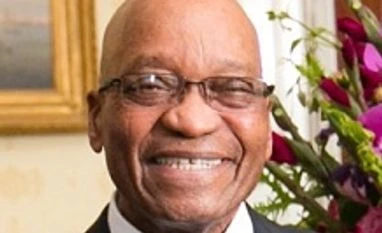South Africans voted on Wednesday in municipal elections described as the most closely contested for the African National Congress since it took power in the first all-race elections in 1994.
About 26 million people had registered to vote at more than 22,000 polling stations as the ANC sought to retain control of key metropolitan areas despite a vigorous challenge from opposition parties.
President Jacob Zuma voted near his private home in the rural area of Nkandla, which has been the focus of a scandal over millions of dollars in state upgrades to the president's compound.
Voting in Cape Town, retired archbishop and Nobel laureate Desmond Tutu said it remained an "honor for a black person to vote in this country" following the end of white minority rule.
An Associated Press journalist noticed a few delays as workers waited for ballot boxes at some polling stations in Khayelitsha, a poor area of Cape Town. The streets were calm as police patrolled and some people went to work even though the government declared a national holiday.
More than a dozen political candidates and party activists were killed in the run-up to the election, mostly in KwaZulu-Natal province, a stronghold of the ruling party. The killings could be linked to a struggle for the resources and patronage that come with top municipal jobs, according to election experts. Campaigning elsewhere was mostly peaceful.
Opposition parties hope to make big gains against the ruling party in Johannesburg; Tshwane, which is the greater metropolitan area of the capital, Pretoria; and Nelson Mandela Bay, a municipality on South Africa's east coast. The opposition Democratic Alliance already runs the city of Cape Town.
More From This Section
The African National Congress, formerly the main anti-apartheid movement, has dominated politics in democratic South Africa. However, it has seen some erosion of support from South Africans who say their hopes for jobs and other opportunities have not been fulfilled since the end of white minority rule. The South African economy has stagnated since the global financial crisis in 2008.
A more radical opposition party, the Economic Freedom Fighters, advocates the nationalisation of industry and other measures that it says would help the poor. It is contesting the local elections for the first time.
Lawmakers of the Economic Freedom Fighters have disrupted parliamentary sessions several times to protest the scandal over Zuma's private home, which has hurt the ruling party's popularity. The case went to the Constitutional Court, which said Zuma had violated the Constitution and instructed the president to reimburse the state for $507,000, an amount that was determined by the national treasury.
Many South Africans are also concerned over allegations that Zuma is heavily influenced by the Guptas, a wealthy business family of immigrants from India. The president has denied any wrongdoing.
Lihle Spani, a voter in Johannesburg, recalled that black South Africans were unable to vote during apartheid and that voting today was a kind of tribute to those who had lacked basic rights.
)